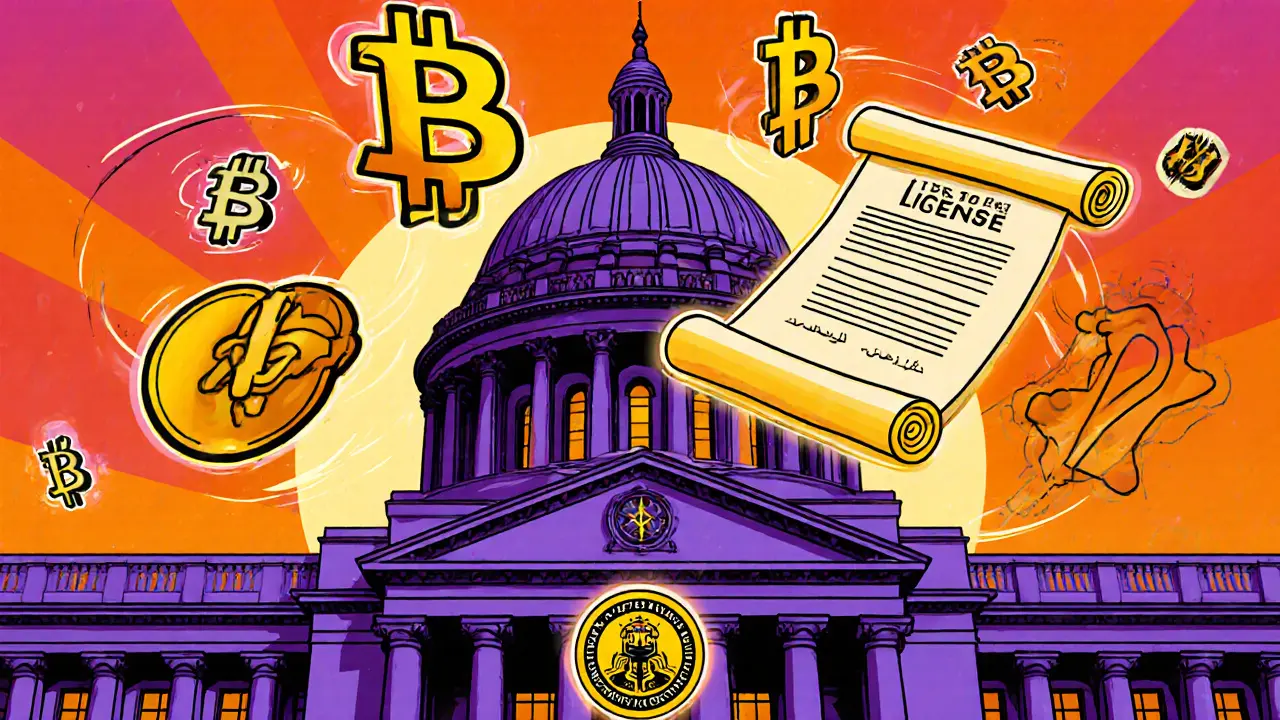Crypto Licensing in Jordan: What You Need to Know About Regulations and Exchanges
When it comes to crypto licensing in Jordan, the official stance from Jordan’s Central Bank and Securities Commission is cautious, with no formal licensing framework yet in place for crypto exchanges or trading platforms. Also known as digital asset regulation in Jordan, this lack of clear rules means most exchanges operate in a gray zone—neither banned nor officially approved. Unlike Germany’s BaFin or the U.S. SEC, Jordan hasn’t created a step-by-step process for crypto businesses to get licensed. That doesn’t mean crypto is illegal—it just means there’s no legal safety net for users or platforms.
This uncertainty affects everything from local exchanges to international platforms trying to serve Jordanian traders. If you’re running a crypto business or just trading from Jordan, you’re navigating rules that are mostly implied, not written. For example, the Central Bank of Jordan has repeatedly warned that crypto isn’t legal tender and that banks can’t process crypto-related transactions. That pushes users toward peer-to-peer platforms or offshore exchanges like KuMEX or StackSwap—platforms that don’t require KYC for Jordanians but also offer no legal recourse if things go wrong. Meanwhile, cryptocurrency regulation Jordan, as seen in neighboring countries like the UAE or Saudi Arabia, is evolving fast with clear licensing paths and tax rules. Jordan hasn’t followed suit yet, leaving traders in a legal limbo. This gap is why so many Jordanians rely on global exchanges with no local presence—because there’s no local option that’s officially safe.
What’s missing in Jordan isn’t interest—it’s structure. People trade Bitcoin, Ethereum, and airdrops like BRKL and SHO without hesitation. But without licensing, there’s no way to verify if an exchange is secure, if funds are insured, or if customer support is real. That’s why posts on this site dig into exchange safety, red flags like the mysterious 4E platform, and how to spot trustworthy services when there’s no government stamp of approval. You’ll find guides on crypto exchange compliance, how to protect yourself when trading on platforms that don’t answer to Jordanian law. It’s not about avoiding crypto—it’s about surviving it safely in a place where the rules haven’t caught up. Whether you’re a trader, a developer, or just someone trying to send crypto to family abroad, the lack of formal licensing means your own due diligence is your only protection.
Below, you’ll find real reviews of exchanges used by Jordanians, deep dives into tokenomics that matter locally, and clear breakdowns of how to avoid scams when there’s no regulator watching your back. No theory. No guesswork. Just what works—and what doesn’t—when you’re trading crypto in Jordan today.
Jordan Central Bank Crypto Policy 2025: Regulations, Licenses & Market Impact
Explore how Jordan's Central Bank moved from a crypto ban to a licensing framework in 2025, covering the law's key rules, compliance steps, penalties, and regional impact.
